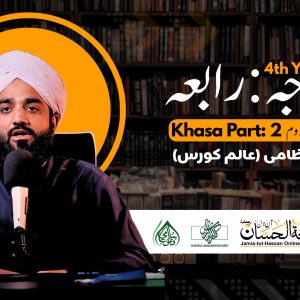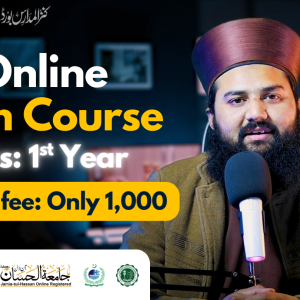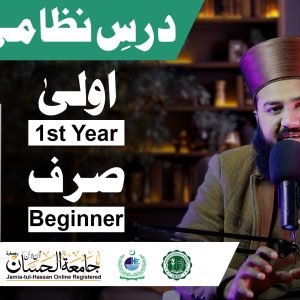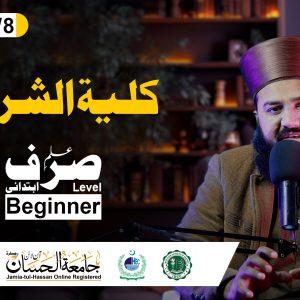Bachelor of Arts in Islamic Studies
Embarking on the journey to earn a Bachelor of Arts in Islamic Studies is an enriching experience that opens doors to a deep understanding of the rich cultural, historical, and religious tapestry of the Islamic world. This degree offers students the opportunity to delve into a variety of subjects, from theology and history to political economy and language studies. In this article, we’ll explore what this degree entails, its potential career paths, and how it equips students with a comprehensive understanding of Islam and its global impact.

The Bachelor of Arts in Islamic Studies is a multidisciplinary program designed to provide students with a profound understanding of Islamic culture, religion, and history. This degree integrates various academic fields, including theology, history, political science, and sociology, offering a holistic view of Islamic societies and their global influence.
Core Components of the Curriculum
Students pursuing a BA in Islamic Studies will encounter a diverse curriculum that covers several key areas:
📚 Explore Our Latest Islamic Courses 📚
- Islamic Theology and Philosophy: This component focuses on the foundational beliefs and philosophical underpinnings of Islam, including the study of the Quran, Hadith, and Islamic jurisprudence.
- Islamic History and Civilization: Students explore the rich history of Islamic societies, from the advent of Islam in the 7th century to the present day, examining key events, figures, and movements.
- Islamic Art and Culture: This area delves into the artistic and cultural expressions of the Islamic world, including architecture, literature, music, and visual arts.
- Islamic Political Economy: This unique aspect of the degree examines the economic systems and political structures within Islamic societies, offering insights into the intersection of religion and governance.
- Language Studies: Many programs include the study of Arabic or other relevant languages, providing students with the linguistic tools to engage with primary Islamic texts.
Specializations and Majors

Within the Bachelor of Arts in Islamic Studies, students have the opportunity to specialize in areas that align with their interests and career goals. One popular major is Political Economy, which combines the study of Islamic principles with modern political and economic theories. This major prepares students for careers in international relations, policy analysis, and governmental roles.
Other potential specializations include:
- Islamic Law (Shariah): Focusing on the legal frameworks and ethical principles of Islam.
- Comparative Religion: Exploring Islam in relation to other world religions.
- Islamic Education: Preparing graduates for roles in educational institutions and community outreach.
Career Opportunities with a BA in Islamic Studies
Graduates with a Bachelor of Arts in Islamic Studies are equipped with a unique skill set that opens up a range of career opportunities. Here are some potential career paths:
📚 Explore Our Latest Islamic Courses 📚
Academia and Research
Many graduates choose to pursue further studies, such as a Master’s or Ph.D. in Islamic Studies or related fields. Academic careers in universities and research institutions allow individuals to contribute to the body of knowledge in Islamic studies and engage in scholarly discourse.
Government and International Relations
A major in Political Economy or International Relations within Islamic Studies prepares graduates for roles in government agencies, diplomatic services, and international organizations. These positions involve policy analysis, diplomatic negotiations, and cultural exchange programs.
Nonprofit and Community Organizations
Graduates can work with nonprofit organizations focused on social justice, community development, and intercultural dialogue. Roles in these organizations involve advocacy, program management, and community outreach.
Journalism and Media
The skills acquired in an Islamic Studies degree, such as critical thinking and cultural literacy, are valuable in journalism and media. Graduates can pursue careers as reporters, editors, or content creators, covering topics related to the Islamic world.
📚 Explore Our Latest Islamic Courses 📚
Business and Commerce
For those interested in business, a specialization in Islamic Political Economy provides insights into Islamic finance and commerce. Graduates can work in banking, finance, or multinational corporations operating in Islamic markets.
The Global Significance of Islamic Studies

by Defrino Maasy (https://unsplash.com/@defrino)
Understanding the global significance of Islamic studies is crucial in today’s interconnected world. With over a billion Muslims worldwide, the influence of Islam extends across continents, shaping societies, cultures, and economies. By studying Islamic history, culture, and political systems, students gain a broader perspective on global issues and cultural diversity.
📚 Explore Our Latest Islamic Courses 📚
Promoting Intercultural Understanding
A degree in Islamic Studies fosters intercultural understanding and dialogue, breaking down stereotypes and promoting empathy. Graduates are well-positioned to bridge cultural divides and contribute to peaceful coexistence in multicultural societies.
Addressing Contemporary Challenges
Islamic Studies programs address contemporary challenges facing the Muslim world, such as extremism, social justice, and economic development. By analyzing these issues through an academic lens, students are equipped to propose informed solutions and advocate for positive change.
Conclusion
Pursuing a Bachelor of Arts in Islamic Studies is not just an academic endeavor; it’s a journey towards understanding a rich and diverse cultural heritage that continues to shape our world. Whether you’re interested in theology, history, political economy, or cultural studies, this degree offers a comprehensive education that prepares you for a wide range of careers. By promoting intercultural understanding and addressing contemporary challenges, graduates of Islamic Studies are poised to make meaningful contributions to society and the global community.







